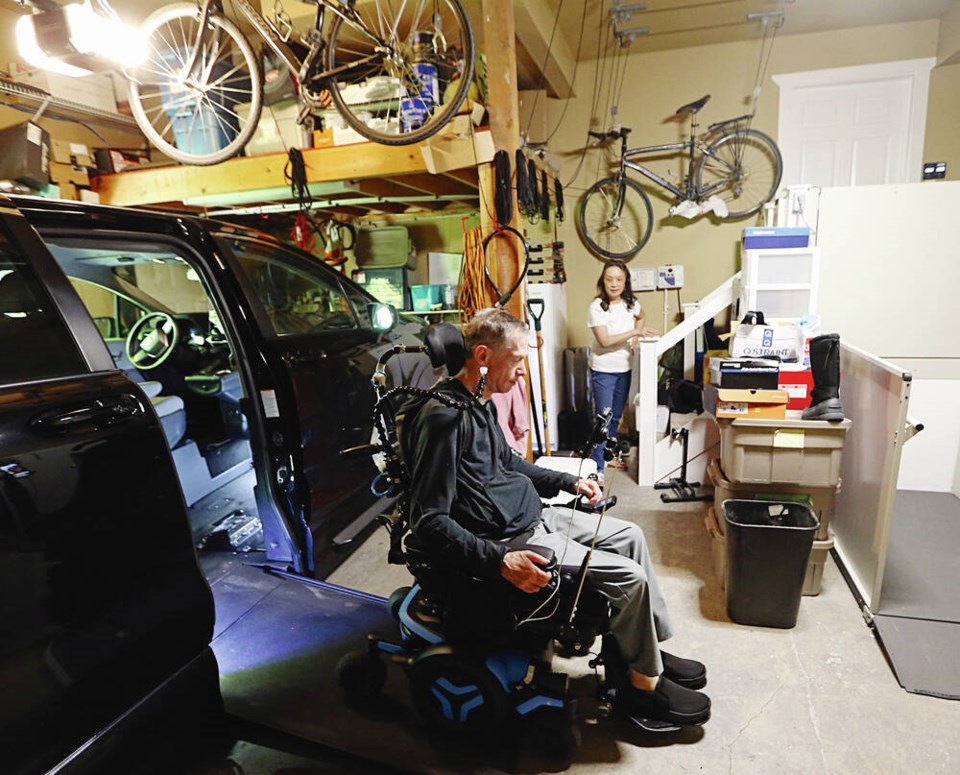The beneficiaries of the old litigation-based ICBC system were lawyers, not victims, says sa国际传媒 Premier David Eby.
He said that any gaps in coverage under the new no-fault system can be addressed in a five-year review.
Eby was responding to critics who say the province’s new no-fault insurance model has reduced rates and provided rebates for policy holders on the backs of victims with catastrophic injuries who can no longer sue for pain and suffering. “I’ve seen the old system up close,” said Eby, a former human rights lawyer, the son of a personal injury lawyer and attorney general in 2018 when the sa国际传媒 NDP called ICBC a “financial dumpster fire” due to its $1.3-billion deficit.
“I can tell you that the beneficiaries of the old system were lawyers,” said Eby. “It was not drivers, who paid double-digit increases every year. It was not people who were injured in crashes, who paid 30 per cent of the reward that was supposed to pay for their care for the rest of their life, in legal fees, at least.”
Eby, a former adjunct professor of law at the University of British Columbia, said victims went through multi-year court battles waiting for money to pay for their care, as opposed to the 12 weeks of immediate care offered to injury victims now, without referrals.
No-fault insurance, dubbed the “enhanced care model,” was introduced in May 2021 to provide set amounts of compensation by injury type to victims, regardless of fault and without a referral. It eliminated most victims’ right to sue.
The goal of the no-fault system was to ensure billions of dollars that were then going into legal fees, and pain and suffering and injury claims, instead went into improved benefits, immediate treatment and compensation, as well as generating lower basic rates and rebates for policy holders.
This month, Eby announced a fourth rebate to be delivered May through July to about 3.6 million policy holders, at a cost of $400 million, due to the corporation’s projected revenue of about $1.3 billion.
Last July, Victoria lawyer Tim Schober, who was left a quadriplegic after he was hit by a vehicle while cycling in August 2021, launched a civil claim in sa国际传媒 Supreme Court against the province, with the Trial Lawyers Association of sa国际传媒 as a second plaintiff, arguing that no-fault insurance legislation discriminates against individuals based on the cause of their disability.
Schober has argued that ICBC’s revenue gains come at the expense of catastrophic injury victims like himself who aren’t compensated their full working wage and can’t sue for higher compensation for pain and suffering.
Eby said one of the commitments the government made when it brought in the new system was a review at the five-year mark of implementation “to make sure that we were able to identify any issues.”
Issues have come up with the new system when it comes to pedestrians and cyclists “and other pieces as we put the new model in place,” he said.
“We have addressed those issues, but there may be others,” said Eby. “And so by doing that review, we’ll be able to close any additional gaps that may be in place.”
The Conservative Party of sa国际传媒 says victims who suffer life-altering injuries in motor vehicle collisions should be exempt from the no-fault insurance regime and “permitted to pursue fair and reasonable compensation in the British Columbia court system.”
Leader John Rustad has said, however, his party would keep in place a monetary cap for pain and suffering due to “minor injuries,” or what’s called “soft-tissue” injuries.
Eby said Thursday it’s “astonishing to me” that the Conservatives would look at four rebates to date and no increase to basic rates through to 2026 and want to unravel that system.
“And there’s only one reason that they would do that,” said Eby.
“It’s for the personal injury lawyers.”
>>> To comment on this article, write a letter to the editor: [email protected]



